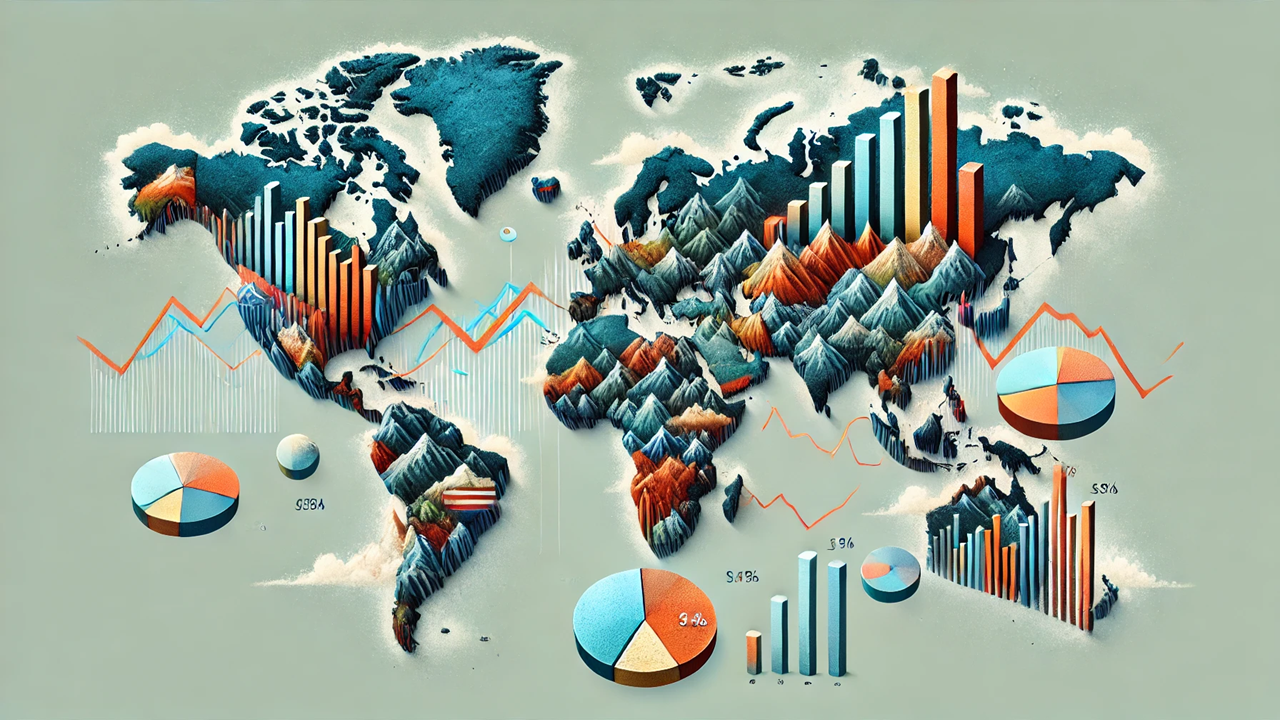Global Debt Crisis: Developing Nations Struggle Under Financial Strain
The "World of Debt" report by UNCTAD highlights the escalating global debt crisis and its severe impact on developing nations. It calls for urgent reforms in the international financial system to manage debt costs, increase financing for development, and ensure inclusive governance.

The United Nations Conference on Trade and Development (UNCTAD) has released its "World of Debt" report, shedding light on the escalating global debt crisis. This report underscores how rapidly growing public debt, especially in developing countries, is hampering sustainable development efforts. While public debt can be an essential tool for governments to fund critical services and infrastructure, it becomes a significant burden when it grows unchecked.
Rising Global Debt
The report reveals some staggering figures. By 2023, global public debt had soared to an astonishing 97 trillion dollars, marking an increase of 5.6 trillion dollars from the previous year. The situation is particularly alarming in developing countries, where debt is rising at twice the rate of developed nations. In 2023, these countries collectively owed 29 trillion dollars, making up 30 percent of the global total, a sharp increase from 16 percent in 2010.
This debt isn't spread evenly across regions. Asia and Oceania account for more than three-quarters of the debt held by developing countries. Latin America and the Caribbean hold 17 percent, while Africa, facing severe economic challenges, holds just 7 percent. Interestingly, while some regions have managed to reduce their debt-to-GDP ratios due to high inflation and unexpected economic growth, Africa's debt burden continues to grow, with its median debt-to-GDP ratio reaching 61.9 percent in 2023.
The High Cost of External Debt
Developing nations face particularly high costs when it comes to servicing their external public debt, exacerbated by an unfair international financial system. By 2022, their external public debt had climbed to 3.2 trillion dollars, with debt service requirements remaining high at 365 billion dollars. This massive financial burden diverts crucial resources away from essential areas such as health, education, and climate action.
The global rise in interest rates since 2022 has further strained these countries' budgets. Net interest payments on public debt hit 847 billion dollars in 2023, a 26 percent increase from 2021. Shockingly, more than half of the developing countries now spend at least 8 percent of their government revenues on interest payments, double the proportion from a decade ago. This escalating expense severely undermines critical public spending and directly impacts human development.
People Bear the Brunt
High debt also hampers efforts to combat climate change. The report highlights that to meet the Paris Agreement targets, developing countries need to significantly boost their climate investments. Yet, these nations currently spend more on interest payments than on climate initiatives. This financial strain makes it incredibly challenging for them to invest in sustainable practices and achieve their environmental goals.
Moreover, Official Development Assistance (ODA) to developing countries has declined for two consecutive years, falling to 164 billion dollars in 2022. A growing portion of this aid now comes as loans rather than grants, further increasing these countries' debt burdens. Resources for debt-related actions, such as debt relief, have plummeted to historic lows, compounding financial pressures.
Urgent Call for Reform
The "World of Debt" report makes a strong case for urgent reforms in the international financial system to manage the high cost of debt and support sustainable development. Key recommendations include implementing mechanisms to manage debt costs and reduce the risk of debt distress, increasing access to affordable long-term financing, providing greater liquidity during crises to prevent countries from resorting to debt as a last resort, and enhancing the participation of developing countries in the governance of the international financial system.
The UNCTAD report emphasizes that without these critical reforms, developing countries will continue to face severe challenges in achieving their development goals and mitigating the impacts of climate change. The call to action is clear: the global community must come together now to ensure a prosperous future for all.
- FIRST PUBLISHED IN:
- Devdiscourse










